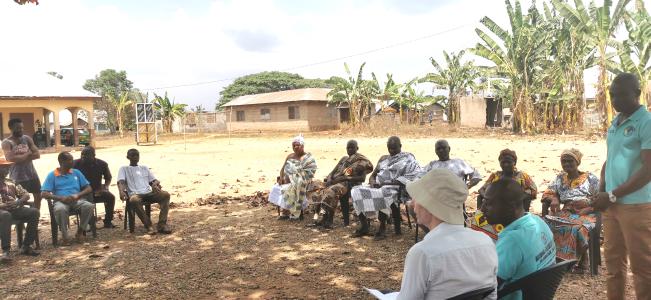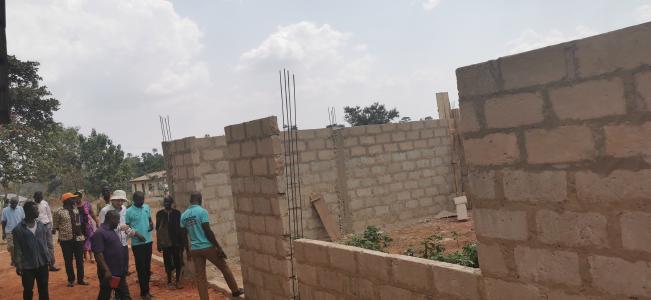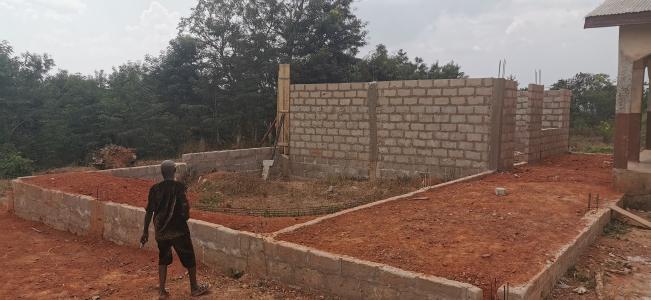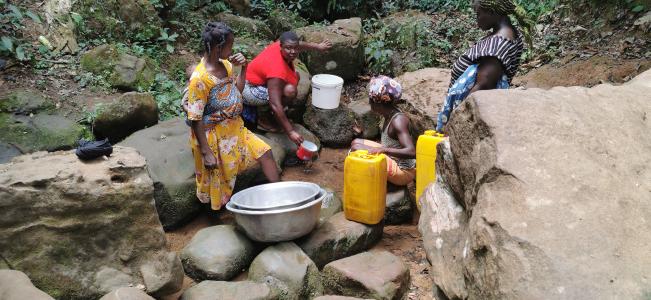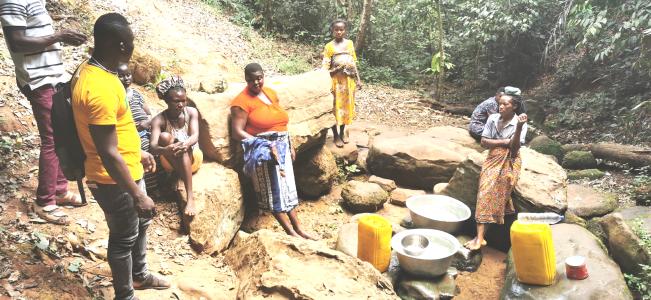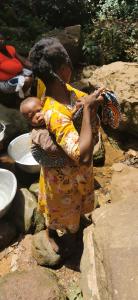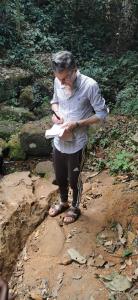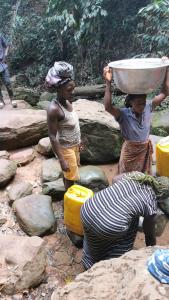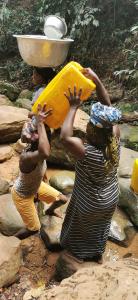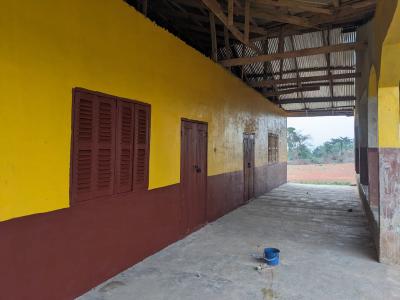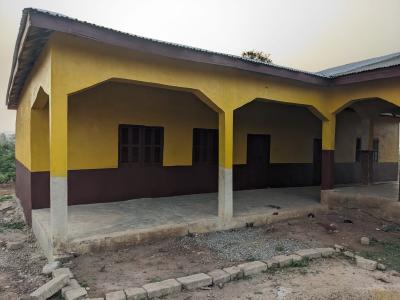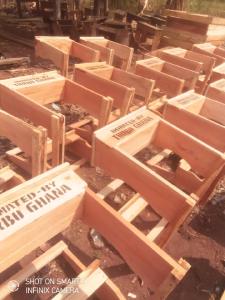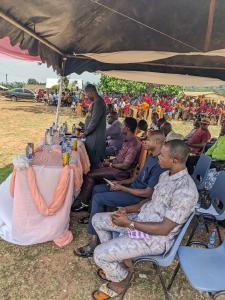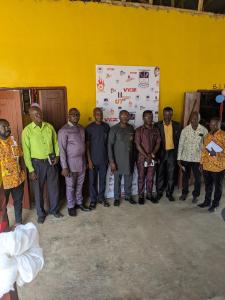Completing a school building in PSK
Rationale and planning
Pataase, Sesease and Kokoben are three adjacent villages with a population of 1500, known together as PSK. They sent us a letter via Kwasi. George Attakora is the assemblyman covering this area, and is a colleague of Kwasi. Mark visited the village in February 2024.
Most urgent request: completion of a community-initiated school building
PSK has a government-built school with two classrooms (for Junior High School (JHS) years 1 and 2), but they lack the final year (JHS 3). In 2023 they started a community fundraise to find money to build an additional classroom. They succeeded in raising about 30K cedis (£1900), and started the project (see photos). The money was raised when the village had a “homecoming day” for former villagers that returned for a visit, and about 200 people contributed. Thomas Sarfo has done the project management so far.
The community at PSK has asked Turbo Ghana to complete the project. They estimate that 150K cedis (£8800) is needed to complete it. The school will serve 45 students (that is the current student population for JHS 2, that will graduate to JHS 3 in the summer). This budget should be enough to include the required furniture. If funds allow, we may also improve the furniture in the two existing classrooms.
If our fundraising is successful, we will plan to build the school building and hand it over to the Department of Education (which owns the rest of the school) so that they staff it and run it as a school. We will obtain the Department’s formal undertaking to do this (as we did for the Kontonho school).
Possible future projects in PSK
We will start by helping the community to complete the school building, and if that project is successful and the community has done the necessary work to get it established as a JHS school with government-funded teachers, we may continue supporting PSK with other projects.
Public toilet. PSK has no toilets and people defacate in the bush. This is a dangerous practice, especially for women and children. As well as snake bites, there is a risk of sexual aggression, especially at night. In our meeting, they asked for a toilet block with 15 seats. Then there was some discussion about whether it would be better to have two blocks of 7 seats each, or even three blocks of 5 seats each. Kofi Antwi (purple shirt) was very articulate and proposed that they would hold a meeting with the elders and decide what was the best solution and come back to us. We asked how the toilet block(s) would be maintained, and we discussed a flat fee of 10 cedis/household/month to generate a fund for maintainance. Kofi said that in their meeting, they will also calculate whether 10 c/h/m is the right price, taking account of affordability and maintenance costs.
Water. Community members currently go to the Kokobenmu stream to fetch water. We went there with them.
The walk took about 15m, down a dirt track which is steep in some places, to a lovely spot with a stream of clean water flowing over rocks. Because it’s in a little valley, it’s cool and wet there, which is very pleasant. Some women came to fetch water while we were there. Matilda comes there 3x per day, but Adoma comes 7x on some days, particularly Mondays because according to local superstition it’s taboo to come on Tuesdays so on Monday she has to fetch water for Tuesday too. The way back takes longer because it’s uphill and you are carrying water on your head. Then you have the time spent filling your containers, which isn’t easy because the water is shallow. So the round trip takes about an hour.
Therefore, if our first project (school completion) is successful, we will consider fundraising for a borehole for PSK, in the village. This will make fetching much easier and hence improve the lives of women.
Update (June 2025)
The school has been completed and is looking great! It consists of the two rooms on the left of the pictures, and its roof attaches it to the existing school building on the right.
As well as the building, we also funded the purchase of classroom furniture. Here, the furniture is shown at the carpenter’s yard, ready to be delivered.
There was an official opening on 10 April 2025 by the Mampong Municipal Assembly. Kwasi Alare (4th from left) writes: “On my immediate right is the AG. MCE, Mr. Mohammed Mumuni, followed by Prince Owusu Ansah (Director of Education, Mampong), Mr Best (Education Service PRO), Circuit Supervisor, Mr Rockson (PSK JHS headteacher) and on my left Hon Oduro Daniel (presiding member Mampong Municipal Assembly), followed by PSK primary school headteacher, and last person is the teacher at PSK primary school.”
